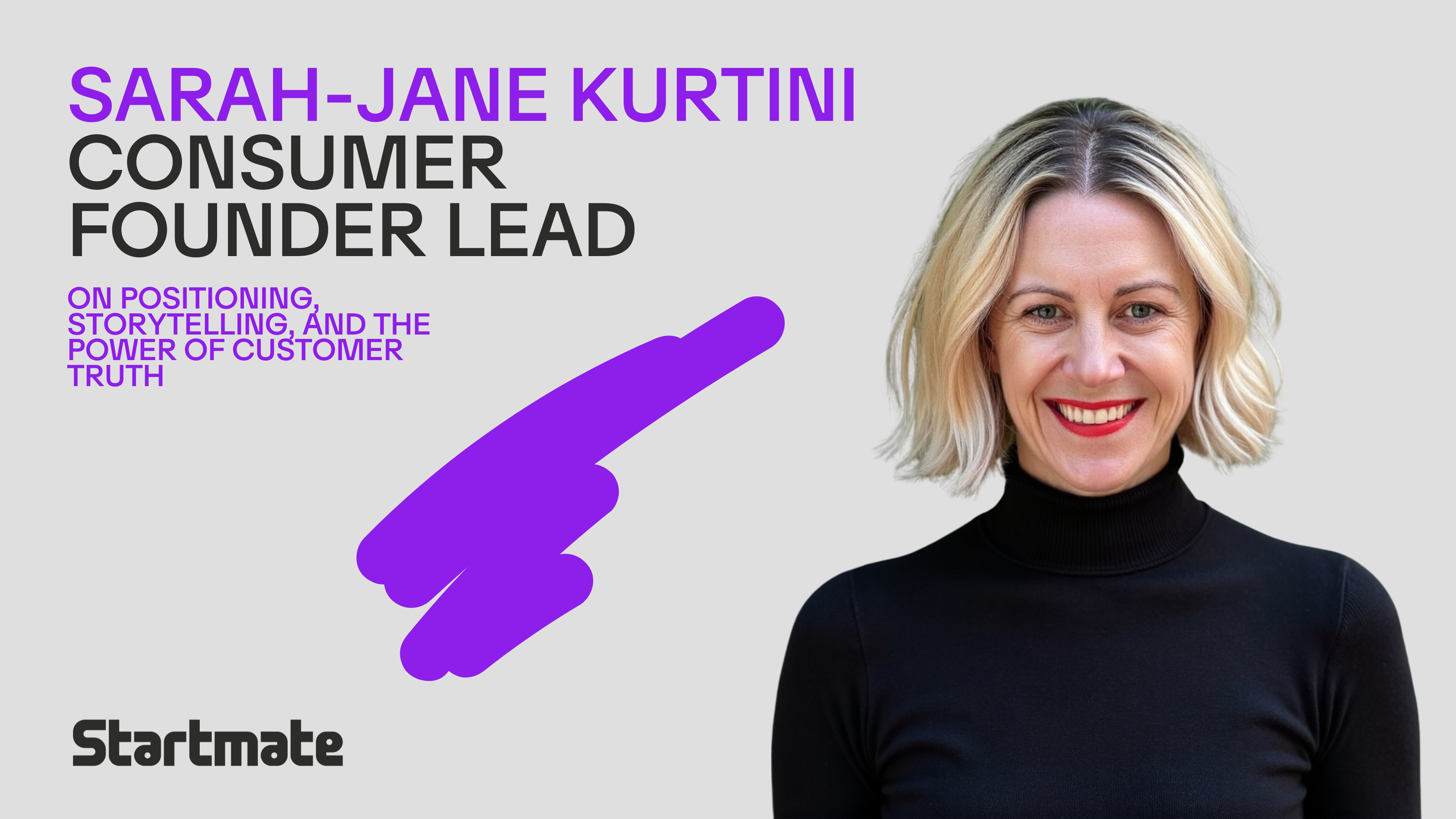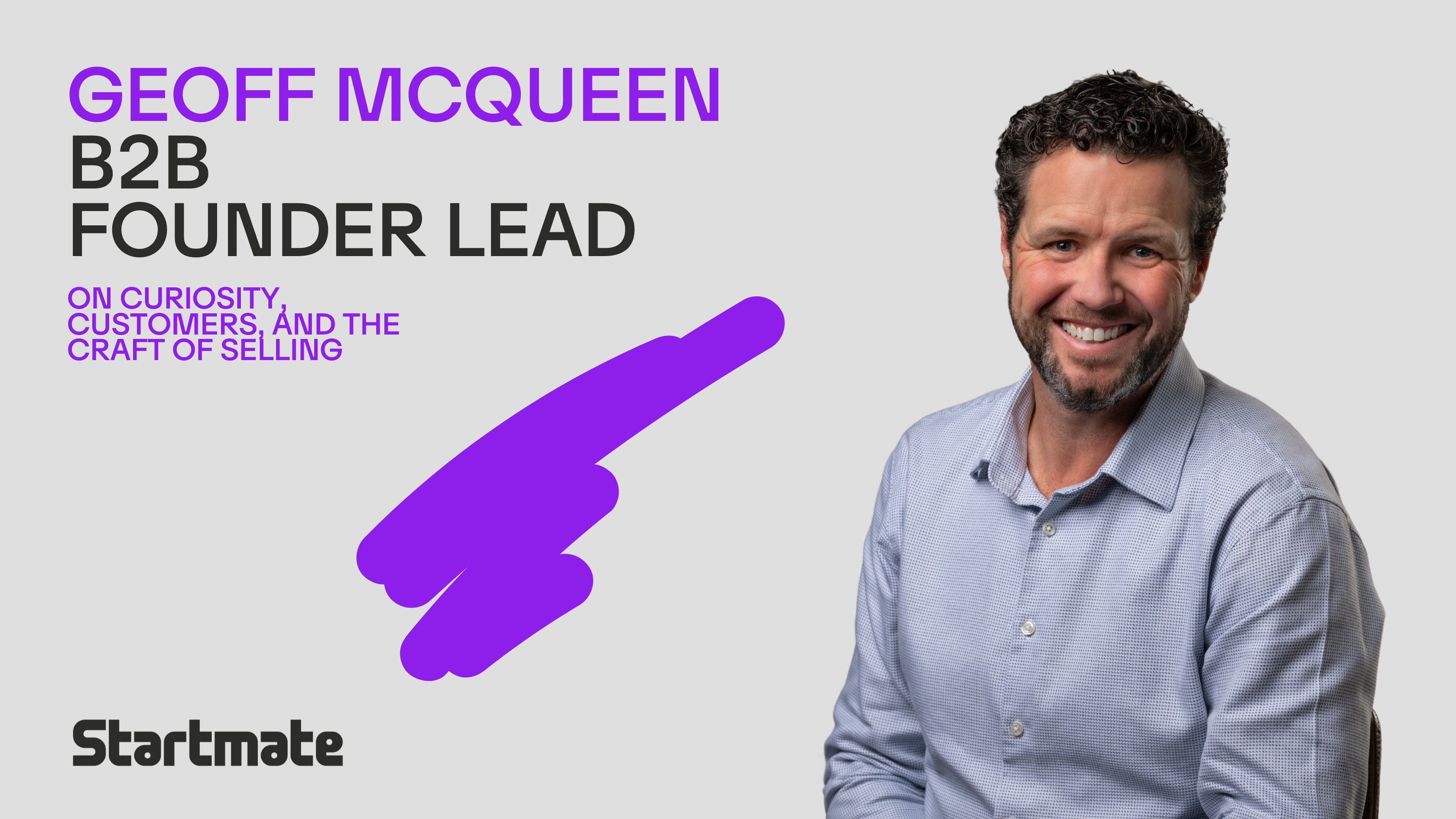Take a third-generation farmer with three startups under his belt and a serial innovator who’s turned algae into medicine and developed an AI mental health app for an A-league football team, and what you get is a recipe for magic.
Combining ancient knowledge with future tech, Rainstick is developing a breakthrough innovation that mimicks the power of lightning to grow crops bigger, faster, and with tailored precision - and their bright idea could transform the world.
When ancient wisdom meets future tech
Using electricity to grow food might seem like an unlikely way to feed the planet, but for Mic Black and Darryl Lyons, it was destiny.
“I met Mic about 7 years ago and I always wanted to work with him, but I felt like I had to go through my apprenticeship first,” said Lyons.
Fast forward half a decade and it was synchronicity that brought the two together.
At the exact same time as Black was beginning to tinker with high-voltage electricity and food, Lyons was learning about his own ancestry.
“I told Darryl about my research and he said he had just discovered the whole story about his mob, and it was so weird that these things happened completely separate to each other. It was a real serendipitous moment.”
What Lyons had just discovered was that his ancestors, the Maiawali people, had been harnessing the power of lightning for tens of thousands of years.
"Our mob used the ‘chuggera’ as a lightning stick to influence thunderstorms to provide food for the season."
Among the Indigenous peoples of the arid interior, his mob was known as 'the Rainmakers.'
“It all came together in this one fateful conversation, which ended up becoming Rainstick,” said Black.
Black and Lyons knew, from a huge body of anecdotal evidence, that electroculture could help almost all types of plants grow larger and faster, but they decided to start with mushrooms because of the robust body of research on the topic. That research led them to conclude that the available technology was expensive, impractical and not scalable.
When Mic visited a mushroom farm with Chris McLoglin, Australian farmer of the year and previous owner of Australia’s largest organic mushroom farm, he got to witness, firsthand, just how impractical the laboratory tech designed for electric stimulation of fungi would be in the real world. That was when he was struck with a groundbreaking idea.
“It was the point when I realised that we needed to create a wireless delivery system.”
Not long after, Mic donned the title of ‘Chief Thunderstorm Creator,’ Darryl became ‘Chief Rainmaker,' Chris came on board as ‘Chief Mycelium Evangelist’ and the team was zapping fungi.
Do you eat?
If you ask Mic Black what problem Rainstick is solving, he answers with a simple question:
"Do you eat?"
With the global population expected to swell to 9.8 billion by 2050 and climate change threatening to decimate our food supply, governments around the world are scrambling to find new ways to increase production and ensure our food stability and security.
Adding to those food and population pressures is the fact that production will have to increase exponentially at the same time as fertiliser and chemical use decreases.
“The EU is already aggressively banning 20% of fertilisers and 50% of pesticides by 2030,’ said Lyons.
“There is already an immediate market pull around organic and regenerative production.”
Feeding a growing population is what helps Rainstick to be immediately relevant. But for the pair, who are creating their solution with the developing world in mind, the challenge they’re sinking their teeth into is much larger than food.
“If the costs of producing food doubles then it's going to affect economic growth. It’s going to affect consumer spending. It’s going to affect GDP, and the world financial markets. So even if you don’t care about food, you have to care about it because it underpins everything…and without food there are no humans,’ said Black.
Resourceful enough to send a pie into space
Mic Black is a serial entrepreneur and community builder. Through Mic’s Lab, and his other businesses, he’s worked on brain-computer interfaces, toured an interactive art exhibition for youth mental health with over 10,000 participants, and even launched a pie into space.
For the past two decades, Mic has always managed multiple companies and projects, but with the urgency to solve the climate and food crises, and the world-changing potential of Rainstick, this is the first time he’s completely dedicated himself to one business.
For Black and Lyons, who both live in Cairns, 'can’t' isn’t in their vocabulary.
“If there's something that's inside you that says ‘this has to exist’ and there's no alternative, you have to do it. It has to exist,” said Black.
Lyons is equally committed. "This is something we want to spend the next 10 years doing.”
Black is always ready to go the extra mile for Rainstick, in fact, he's gone an extra 8,000.
After learning that Australian regulations prevented him from conducting his early lighting experiments, he collaborated with a Serbian physicist to rent a World War 2 bunker in Serbia.
“I remember being on a video call with him. He was translating the lease to me - because it was in Cyrillic… As we’re working through it he stops and says, ‘Mic, you know this is textbook crazy right?’ and I said, ‘Oh yeah, it’s definitely textbook crazy.’’
“That was a pretty cool moment because after we signed the lease for that lab we were able to do amazing electrical testing and our understanding of what we were doing moved forward by years in a matter of months.”
Back in Australia, CSIRO told him that, ‘for obvious reasons’ he couldn’t conduct his 50,000-volt experiments on-site. He knew he needed as little time as possible between the experiments and viewing the results under the microscope, so he rigged out a campervan and set up shop in a nearby parking lot as a lightening treatment mobile.
Making everything better
The elevator pitch is: ‘Rainstick mimics the effects of lightning to grow crops bigger, faster and more sustainably,’ but when you get out of the elevator and hear the full story, it feels like you’re in one of those extravagant game shows where the host runs out of breath with an endless loop of ‘but there’s still more!’
“Over the 75 mushroom logs we tested over multiple trials, we were able to increase yield by 20% and growth rate by 24%”
“The technology can change the chemical composition of the fungi.”
“We were also able to inhibit mould growth.”
Rainsticks technology isn’t just for mushrooms.
“We’re increasing the seedling figure of wheat, rice, barley, canola, and other vegetables - with +10% germination rates, +70% leaf lengths and up to 100% increase in biomass all leading to a significant increase in yield depending on the variety”
The company’s long-term vision also extends beyond plants and fungi.
“It would be remiss of us to just say, we're just here to grow food. If we were only here to grow food we'd still be an enormous company,” said Lyons.
“Rainstick may also be used for environmental purposes, such as ecosystem restoration.”
“Whether it's for food, bioplastics, biomaterials, nutraceuticals, pharmaceuticals, or other biological forms, we see a wide space of opportunity for this novel technology.
The transformative potential
The wide-ranging applications of Rainstick’s technology is remarkable but the real magic lies in the transformative role it could play across a whole swathe of industries, and the potential it has to catalyse ‘positive tipping points’ for sustainable and regenerative solutions.
“Alternative protein, chemical alternatives, bioproducts, vegan leathers, carbon sequestering. If you can think of it, there’s a startup out there somewhere using plants or fungi to achieve it,” said Black.
"We could potentially help all of them improve their unit economics," said Lyons.
“It will open up a whole bunch of things that we can't even imagine at this point in time. Things that were not economically viable, things that were not even conceived, because we're now building on a new base a new understanding of what's possible,” said Black.
You have to be patent
With 2023 being the hottest year on record and the threats to food security growing daily, Rainstick’s solutions can’t come fast enough. The team credits their Startmate experience, and the whole Startmate community, as helping them to accelerate their journey to impact.
“The access to the Startmate mentors has been a big part of our momentum,” says Lyons, “Our Mentor Partner has gone out of his way, meeting us two to four times a week, and providing us with invaluable advice...and our mentor squad has helped us find some answers to some big curly questions.”
“There is so much value in the entire network, and everyone is really keen to help. It has been phenomenal for us.”
One of the most valuable forms of guidance the team received was from a mentor who advised them on how to structure their global patents to make sure they could protect their ingenious innovation and remain the global leaders for decades to come.
Black and Lyons aren’t just interested in protecting their intellectual property so they can seed the world with their invention, they’re also passionate about ensuring that the Indigenous wisdom is recognised and compensated.
“It’s really important to us to acknowledge that we’re not taking Indigenous knowledge, we’re building upon it with the permission.”
“Rainstick acknowledges the Indigenous Cultural Intellectual Property (ICIP) of the Maiawali people and will ensure all customers, investors, and partners also acknowledge the ICIP.”
“There’s a pledge for the Maiawali Foundation, and we’re working with specialists in IP to make sure that at no point in time, no matter what happens in the future, the company shareholders still have to acknowledge the Indigenous knowledge system which we build up.”
Generating buzz pre-seed
With such a strong product and two seasoned founders, it’s no surprise that Rainstick is already attracting a lot of attention. The company has been supported by Startmate's First Believers and participated in the CSIRO ON accelerator, where they were named a ‘Deeptech game-changer.’ They’ve been featured on the front page of Forbes Australia, named in the Australian Top 100 Innovators, Thrive top 40 globally, and have raised almost half a million dollars in SAFE notes followed by an active pre-seed round of 1.6M only 6 months later.
And the grand vision?
“It's a real challenge, because you don't want to come across as sensationalist. But, at the same time, you actually have something that, if it does what we are working towards, it will be transformative,” said Black.
“For us, when it comes to food and climate change, we see it like this: you’ve got water, sunlight, and soil. Rainstick is a fourth lever that hasn’t been explored - a lever of hope.”

.webp)




.png)

